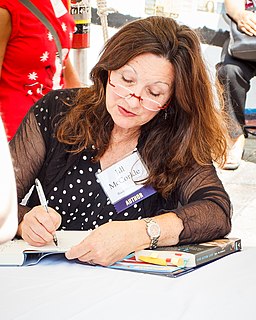A Quote by Jill McCorkle
You want to feel that your reader does identify with the characters so that there's a real entry into the story - that some quality speaks to the individual.
Related Quotes
As readers, we want not only a strong story, but also characters we can relate to, characters that feel real. We have to find something of ourselves in them. Each character, even those only there to serve the mechanics of the plot, should have a number of layers. The entire world you are stepping into as a reader must feel real. It must have resonance, you must be able to touch the light; smell the smells.
Two kinds of reading can be distinguished. I call them reading like a reader and reading like a writer ... when you read like a reader, you identify with the characters in the story. The story is what you learn about. When you read like a writer, you identify with the author and learn about writing.
The poem is not, as someone put it, deflective of entry. But the real question is, 'What happens to the reader once he or she gets inside the poem?' That's the real question for me, is getting the reader into the poem and then taking the reader somewhere, because I think of poetry as a kind of form of travel writing.
My readers have to work with me to create the experience. They have to bring their imaginations to the story. No one sees a book in the same way, no one sees the characters the same way. As a reader you imagine them in your own mind. So, together, as author and reader, we have both created the story.
Characters who are absolutely sure about what they do, who plunge ahead without fear, are not that interesting. We don’t go through life that way. In reality, we have doubts just like everyone else.
Bringing your Lead’s doubts to the surface in your plot pulls the reader deeper into the story, and this is an excellent way to coax the reader to lose himself in the story world you’re about to create.







































